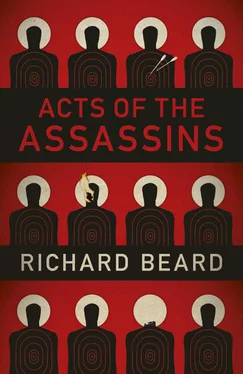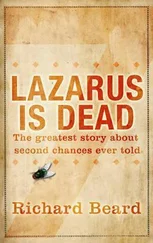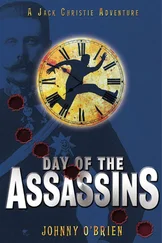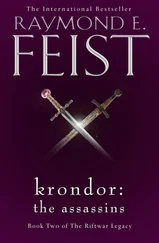Cassius Gallio needs cover, and the Botanical Gardens contain copses of mature broadleaf trees. He weaves through the tree trunks, finding the centre where up above a canopy of leaves greenly deflects the sunlight. Mustn’t be visible from the air. A noise slides from his mouth, a whine of animal fear, and Gallio lies down and covers himself in leaf mould and litter. He crawls into the soil, hiding from the eye of god. He plants himself, and is still.
He’ll wait this out. With one eye open he spies on joggers running off the edge of the path to save their knees. He spies on mothers with pushchairs. Cassius Gallio is buried alive, and he pisses where he lies. A madman, a timeless vagrant without papers, he shall ripen in the warm until he rots.
His visible world is cigarette butts, a used plastic water bottle and a pair of torn Patras cinema tickets. However hard he tries, he finds it impossible to do nothing. He dehydrates, and as his brain dries out he hears voices, ghost versions of Jesus. James and Bartholomew, Jude and Thomas, Philip and James and Simon. They say: ‘I am the least of all the disciples.’
Time passes. Cassius Gallio doesn’t know how long. He may have slept but however many centuries he missed, when he wakes the problem of Jesus remains unsolved. He blinks. He raises his face from the forest floor, and bark flakes from his cheek. He spits a seed off his tongue.
A revelation is making itself known. One of the voices has something to say, and Gallio tries to isolate what is important from what is not. Eight disciples dead, he thinks, but their message continues to spread. Gallio bites the inside of his cheek, tastes blood and soil. Whoever is responsible for killing the disciples, for whatever reason, is not fully informed. Killing them is counter-productive, because every martyrdom is a fresh story that nourishes the original lie: life after death. He remembers the icon of Andrew in the basilica, and realises the disciples continue their work when they’re gone.
He pushes himself up onto his elbows. He’s a Speculator, and should question everything. That’s why Valeria hired him, and at last Gallio sees a truth emerging: they’ve had everything the wrong way round. In Caistor Simon could have escaped from Baruch, if an escape had suited Jesus. James in Jerusalem had jumped from the roof, with no more encouragement than a silent phone call. Jude could have arranged professional security in Beirut, and Thomas had chosen to live in Babylon, a city of famous jeopardy.
Now Andrew has followed Gallio to Patras, where every year on this day the carnival celebrates the death of Andrew the disciple of Jesus. The disciples want to die, which means this story is not like other stories. Gallio sits up, brushes leaf scraps from his hair and shoulders. Lazarus went first, then Jesus at the crucifixion, until these subsequent killings look like entrants in a competition: which disciple of Jesus can die most horrifically, to prove he has no fear? The assassins, whoever they are, say yes you may want to die but not like this, surely, you must surely be frightened by this? Or this, Bartholomew, no one chooses to be skinned alive.
Finally, Cassius Gallio understands. The disciples don’t feel pain, not like he feels pain, because their eyes have seen the glory of the coming of the lord. They believe in a better place, so why linger here? Beheaded, shot with arrows, stoned, speared, hung upside down, clubbed, sawn in half, skinned alive — to the disciples death is a happy ending. Heaven is real, and they love their enemies who send them there.
Jesus is a ruthless opponent and he welcomes violent death, time and again, upon the disciples he claimed to love. His will is done. Jesus co-ordinates every move his disciples make, as one after the other they die hideously and happily.
Cassius Gallio rises up from the forest, the truth revealed to him. Jesus wants his disciples to die, and knowing their secret Gallio has to act, as Baruch did, with Simon. Except Baruch took the wrong type of action. The answer is not to make the disciples suffer, hoping to taunt Jesus into an appearance, but to refuse the idea of a Jesus in control of whatever happens next. Andrew will not die in Patras. The future is not shaped in advance, but can be changed by willed human action. This is a core principle of civilisation, as Gallio has been taught to defend it.
By the time Gallio reaches the Agios Andreas the basilica is filled to capacity, with three thousand worshippers in the tight rows of chairs. They have come to see Andrew die, as they do every year. The wolfmen and the drunken police and the Greek gods of Patras lash Andrew to an X-shaped cross, the flesh of his wrists and ankles swelling round the liturgical belts that bind him. The heavy rhythmic chanting of Andrew’s killers is part of the carnival entertainment, and will remain so for years to come, the old familiar song as Andrew the disciple of Jesus is lifted up. The spectators join in. They clap their hands to the rhythm of the singing as his cross rises high on wires, up and above the holy screen, halfway to the dome and heaven.
Every death is planned, and Andrew the disciple of Jesus is ecstatic, triumphantly not dying of old age or exhaustion. He has avoided those desperate fates, and is intent on joining the eight who have gone before him. The bindings cut into his wrists, into his ankles on the X of the cross, and Andrew is the ninth atrocity.
Gallio struggles through the standing-room-only at the back, bursts into the central aisle but for Andrew he’s already too late. Civilisation will not save Andrew now, because what’s done is done, from Andrew’s collapsing lungs to the blood in lines between his teeth. Gallio knows about the blood, and the bloodstained teeth, because when Andrew catches sight of him he smiles.
JESUS IS THE connection. Nine times Jesus, but Cassius Gallio does not accept defeat. He knows the secret of the disciples, their love of death and dying, and two of the three survivors have been sighted alive in Rome. Gallio will save them. Whatever Peter and John have planned, they will not die on Gallio’s watch. Jesus and the disciples have manipulated death to their advantage for long enough.
On his covert journey from Patras to Rome, in the seafront chapels and quayside shrines of southern Europe, Gallio sees memorials to the crucifixion of Jesus. Every crucifix reminds him that the disciples are capable and cunning. Peter survived Baruch in Jerusalem, even though he was captured. He has avoided every assassin as far as Rome, the heart of civilisation.
Which is why, some time after the death of Andrew in Patras, Cassius Gallio finds himself sitting in a Roman bus shelter. He stares at primary colours advertising hair products and free-delivery bathroom suites. Also and always posters for the Circus, here and at every Roman kiosk: the latest films, plays, albums, the next Circus in line. This coming Saturday, in the first major performance since the fire of Rome, the Circus posters promise wild dogs, chariot-racing, and the public execution of Peter the disciple of Jesus.
Gallio groans. Valeria has no idea what she’s doing. The death of Peter is exactly what Jesus wants, and Gallio is determined to stop it happening. He hasn’t shaved since Caistor, barely washed since his meltdown in the Botanical Gardens in Patras. From Patras to Brindisi, to Venice, to Rome. He loses track of time. Andrew died weeks ago, or it could have been longer, and since then Gallio has been jumping ship, travelling in the cash economy, a deserter without papers in ragged clothes with unkempt hair and the look of a criminal Jesus.
Strangers help him along the way, and he distrusts them. People are kind, offering food and shelter, which makes Gallio suspect the Jesus network of encouraging him, urging him towards Rome for purposes not his own. Know your enemy, he thinks, and he learns the sign of the fish, an increasingly familiar shape on his undercover journey from Greece. Two lines curve from a point and intersect to make the tail, a simple but recognisable symbol of the fish for fishermen, for the disciples.
Читать дальше












